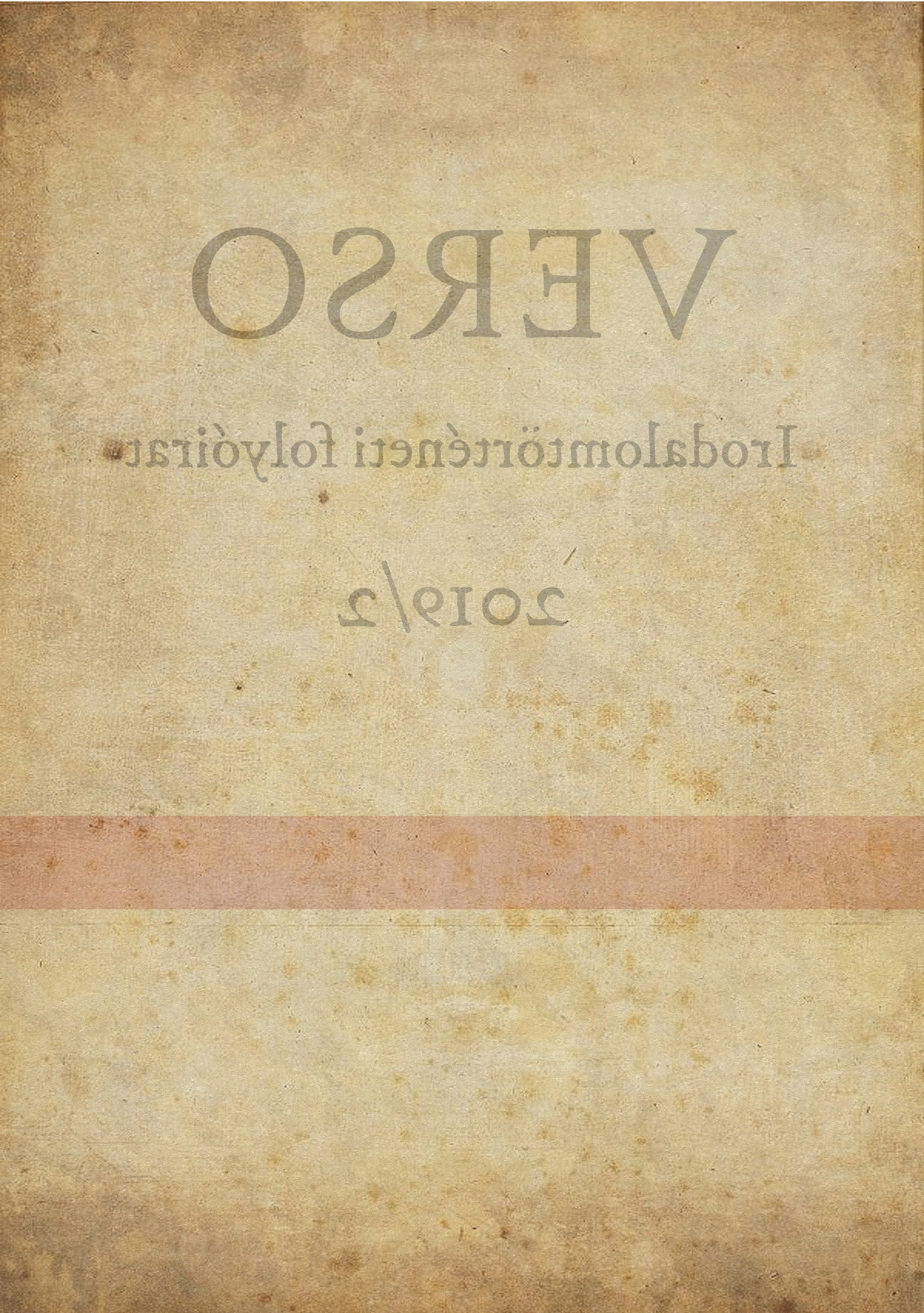The field around Mikszáth
Ideological battles in the literary field emerging around Mikszáth
DOI:
https://doi.org/10.15170/VERSO.2.2019.2.73-94Abstract
My literary-sociological paper applies Pierre Bourdieu’s field theory to provide an outline of the Hungarian literary field at the turn of the nineteenth and twentieth century. While Bourdieu portrays a literary cosmos plagued by opposition and struggling for autonomy around Gustave Flaubert, using the text of Sentimental Education as a model, I claim that there is no Hungarian equivalent of the novel. Trying to reconstruct the emergence of a Hungarian literary field, my point of departure was the figure of Kálmán Mikszáth, under fire by both conservative and secession critics. In the initial parts of the paper I offer an analysis of the critical opinions on Mikszáth’s historical novellas, thereby outlining pre-1900 academic criticism’s aesthetic and ideological underpinnings (the latter invested in nation-building).
The second part of my paper again reviews ideological battles, but the conflict has three poles now. In order to understand the polemical positions, from Bourdieu’s volume I highlighted the process of the emergence of the Parisian literary field, illustrated it visually, and then in the possession of field positions designed a possible model of the development of the Hungarian literary field. I book the remarkable differences between the two literary fields in account: as a consequence of Hungarian actors’ intense involvement in politics and the caesura between 1848 and 1867, upcoming generations were characterised by the gradually increasing experience of a loss of belief in the force of literature to preserve the nation. The generation gap was further deepened by the disappearance of the previously available career opportunities.
The conflict between the generations intensifies with the appearance of a new literary term, the Hungarian soul, which is ought to be sought in literature. The vague academic approach led by Zsolt Beöthy understands it as the Hungarian character, the modernists urging advancing a new canon see it as a form of ideological oppression, while Ignotus sees a downright forcing of racial character. The battle, full of bias, is actually fought for the dominance over a new canon, turns into personal attacks, and Mikszáth, uninterested in canon-building is also drawn into it. With the analysis of some prefaces by Mikszáth, I proved that he represented a relativistic view in the question.
The main conclusion of my paper is that in the Hungarian literary field, the key to an independent position is, besides talent, the lack of a desire for canon-formation, and through this, the rejection of moralising and ideological constructs, which was the strategy chosen by Kálmán Mikszáth. Both his habit and his relativistic attitude press him toward this position.
The ending of my paper offers a potential model of the Hungarian literary field around 1908, relying on the above observations.

